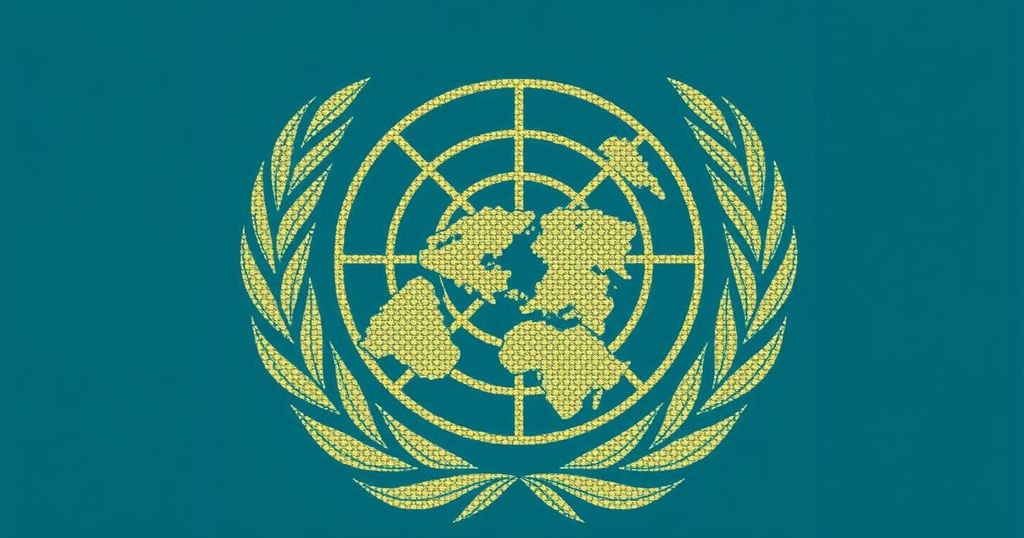UNESCO Reaffirms Commitment to Support South Sudanese Media Through Training Initiatives
UNESCO has pledged ongoing support to South Sudan’s media, addressing existing challenges through training aimed at improving the skills of journalists in areas such as hate speech counteraction, gender responsiveness, and ethical reporting. The initiative is particularly timely as the country prepares for elections in 2026, highlighting the need for quality journalism.
UNESCO has expressed its commitment to supporting media professionals in South Sudan, recognizing the obstacles they encounter. During a recent two-day training event held in Wau, attended by media managers and editors from Western Bahr el-Ghazal, Warrap, Northern Bahr el-Ghazal, and Lakes states, Mr. Paul Night, the representative of the UNESCO Country Director, emphasized the organization’s intention to assist journalists in enhancing their skills. “We are pleased to have you all here. We know the challenges that you face at your stations and we are trying our best with our partners, the Association for Media Development in South Sudan (AMDISS) and so many others to help you build your capacities,” stated Mr. Night. This training session included 30 participants and focused on providing vital knowledge for combating hate speech, promoting gender responsiveness, conducting conflict-sensitive reporting, and ensuring ethical and fact-checked journalism. Mr. Night further noted the difficulties community radio stations in South Sudan face, particularly concerning human resources and financial management, stating, “We know many people come in then go out looking for greener pastures and thus there is no sustainability.” He urged participants to enhance their skills in anticipation of the upcoming elections in 2026, which will necessitate quality journalism. Additionally, Ms. Mary Ajith, chairperson of the Board of Directors for the South Sudan Broadcasting Corporation (SSBC), emphasized the importance of collaboration among journalists in addressing hate speech. “For media management, countering hate speech and misinformation and disinformation, is something that you can do collaboratively, not in competition,” Ms. Ajith affirmed. She further remarked on the role of media in the electoral process, stating, “The unity of the media is important as we talk about elections. Our politicians are always quoted saying election is a process. We the media have to be involved in this process and that is why training on the election is important.” Minister Samuel Nicola of Western Bahr el-Ghazal State highlighted that the training aimed to bolster journalists’ capability in managing information ethically and advocating for media rights. “This workshop has been designed to strengthen your ability and capacity in managing information as well as promoting ethical journalism and advocating the rights of all media personnel, whether in the country or in Bahr el-Ghazal,” noted Minister Nicola, who also assured the journalists of a collaborative relationship going forward.
In South Sudan, the media landscape faces numerous challenges, including inadequate resources, high turnover rates among personnel, and difficulties in sustaining operations. The country is preparing for national elections in 2026, which calls for increased capacity and quality in journalistic practices. UNESCO, in partnership with local organizations, is committed to enhancing the skills of media professionals to address issues like hate speech, misinformation, and to promote ethical reporting. The training sessions aim to foster collaboration among journalists, especially in a politically charged environment leading up to elections.
The recent training conducted by UNESCO for media managers and editors in South Sudan marks a significant effort to empower journalists in the face of numerous challenges. By focusing on essential skills such as countering hate speech and ensuring ethical reporting, the initiative aims to enhance the quality of journalism ahead of the forthcoming elections. Continued collaboration among media professionals, as emphasized by leaders in the sector, is critical to fostering a resilient media environment in South Sudan.
Original Source: www.radiotamazuj.org




Post Comment